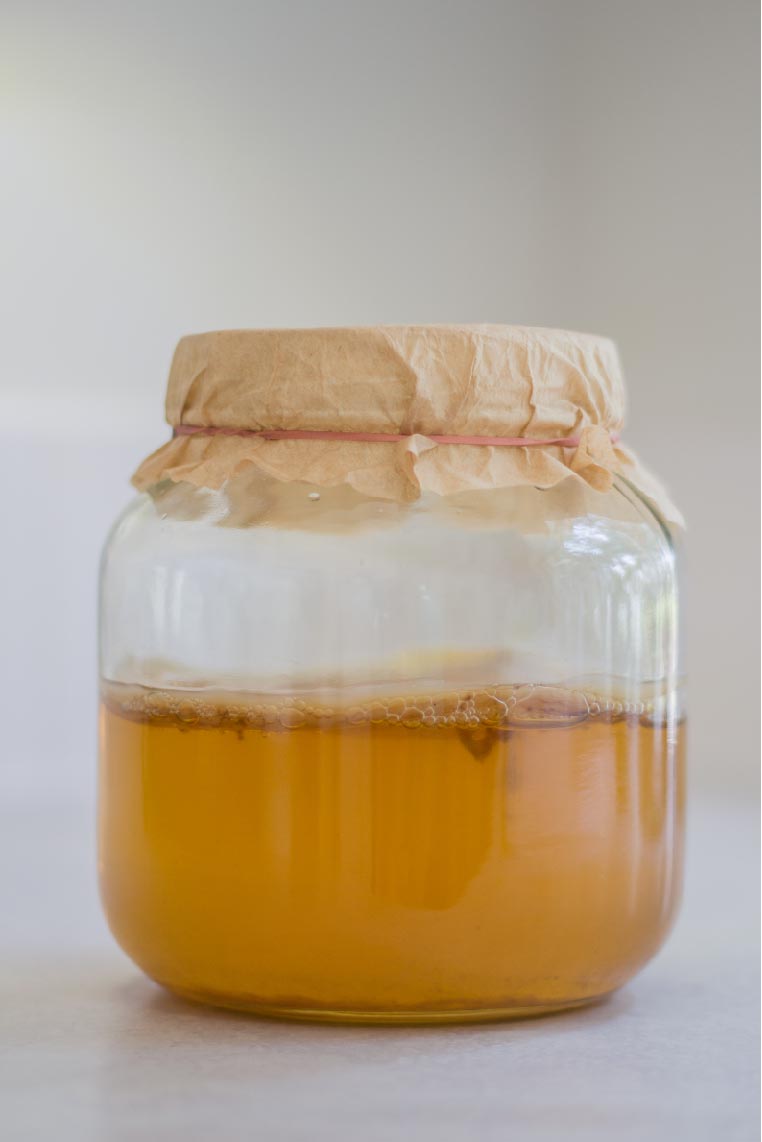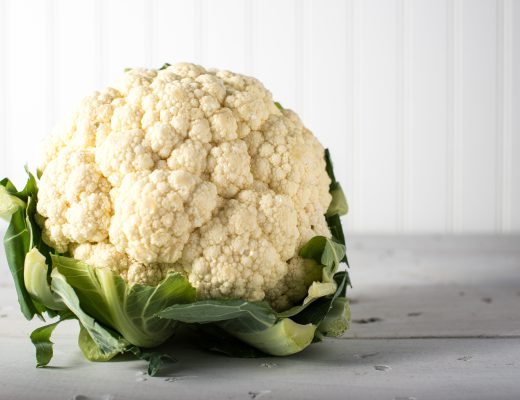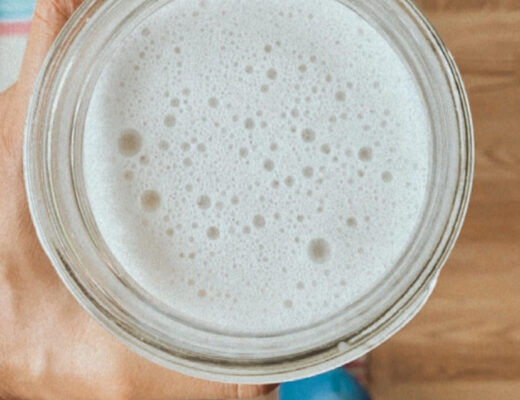Kombucha is a sweetened tea, fermented with a mother/SCOBY (symbiotic culture of bacteria and yeast) that has been around for centuries. Kombucha contains high levels of antioxidants, b-vitamins, probiotics and glucaric acid. This beverage has been used for over 2,000 years to improve health and fight against infection and chronic disease. Ancient Chinese called Kombucha the “Immortal Health Elixer” as they revered it for its remarkable health benefits.
Kombucha can be made with caffeinated or decaf tea, and even with green tea or herbal teas. It is brewed with a SCOBY that “eats” the sugar in the sweetened tea and creates an acidic, vitamin and probiotic rich beverage. Since the scoby’s food source is the sugar, the finished product has minimal effect on blood sugar (source).
Kombucha has been well documented for a full scientific century. In the early “20th century, mainly German medical research, documented Kombucha primarily as an intestinal regulator and as having excellent effects on general body functions, but also progressively established specific efficacy in cases of digestive disturbances, constipation, hemorrhoids, kidney stones, gall bladder problems, diabetes, arteriosclerosis, cholesterol, high blood pressure, angina, gout, gouty eczema, arthritis, rheumatism, atherosclerosis, irritability, anxiety, headaches, dizziness, fatigue, tiredness” (source).
Other health benefits include:
- Liver detoxification
- Improved pancreas function
- Increased energy
- Better digestion
- Boost immune system
- Improved mood (helps with depression)
- Helps with Candida
- Weight loss
The liver is one of the body’s main detoxification organs. Kombucha is high in glucaric acid, which is beneficial to the liver and aids its natural detoxification. As Kombucha also supports healthy gut bacteria and digestion, it helps the body assimilate food more easily and provides quick and easy energy without caffeine.
Hippocrates once said, “all disease begins in the gut.”
Your Gut = Your Second Brain
Which is why it is so important to add healthy bacteria and probiotics daily. Our gut health directly impacts our immunity. In fact, gut flora makes up 80% of our immunity (source). Billions of bacteria live in our large and small intestines as well as our stomachs, and they help to fend off bad bacteria. Truth is, we should aim for a ratio of 80% good bacteria and 20% bad bacteria, but the majority of us have the opposite ratio! (source). Gut bacteria also produces hundreds of neurochemicals that the brain uses to regulate basic physiological processes as well as mental processes such as learning, memory and mood. For example, gut bacteria manufacture about 95 percent of the body’s supply of serotonin, which influences both mood and GI activity (source).
Traditional diets around the world have included raw and fermented food containing bacteria, including many beneficial strains. From yogurt, to kefir, to sauerkraut, to fermented fish and vegetables, cultures around the world are not afraid of bacteria. In our modern day society, we have managed to pasteurize, irradiate, and process out all naturally occurring beneficial bacteria while at the same time feeding harmful bacteria with a feast of processed starches and sugars in our foods. In our Clorox cleaned world of processed foods, many of us could benefit from a dose of good, healthy bacteria (source).
There are ways to increase good bacteria and help balance the bacteria in your digestive system. Unless you already consume a lot of fermented foods, garden barefoot and eat some dirt, your probiotic balance could use a boost. 😉
Increasing Good Bacteria in Your Digestive System
- Don’t Eat Sugars/Processed Grains/Excess Starches: These foods in processed form, deplete beneficial bacteria rather fast and can suppress immunity which may lead to a variety of health problems.
- Consume Fermented Foods and Drinks: Fermented foods and beverages (like kombucha 🙂 or sauerkraut) will support the body in culturing good bacteria.
- Ditch antibacterial soap: Antibacterial soap kills bacteria, good or bad.
- Start gardening: The benefits of dirt are true for kids and adults. If you aren’t fond of mud pies, then start gardening. It is a fun and easy way to get your vitamin D and probiotics while growing your own food!
- Don’t overuse antibiotics: If you do need to take antibiotics, make sure to take a high quality probiotic during the same time to help replenish good bacteria.
- Take a daily probiotic

The kombucha mother, also known as the scoby (symbiotic culture of yeast and bacteria). A healthy scoby means a healthy ferment!
Kombucha Brewing Tips
- Never store scoby’s in the refrigerator
- Sanitize with hot water or vinegar – never soap – It kills the kombucha culture
- Airflow is key – find an open area to brew
- If you see mold, throw everything away. Kombucha scoby’s are not salvagable if mold appears
- Ferment for 7-10 days, the longer you ferment, the less sweet it will be
- Kombucha thrives and brews best in a warmer climate, make sure it’s in an area around 70 degrees Fahrenheit
- A colder climate just means a longer brewing period
How to Get a Scoby
Scobys are living and thriving colonies of bacteria, you can’t just pick one up at your grocery store. But there are a couple ways to get one:
- You can order a scoby from an online source. It’s important to make sure the source is reputable. You can find scoby’s online on ebay and amazon, but I wouldn’t trust those. I always use Kombucha Kamp because it’s trustworthy and has never disappointed me.
- If you know anyone who brews Kombucha, ask them for an extra scoby and they will probably be glad to pass one on. A “baby scoby” is made every batch or two and this baby can then be used to brew kombucha.




